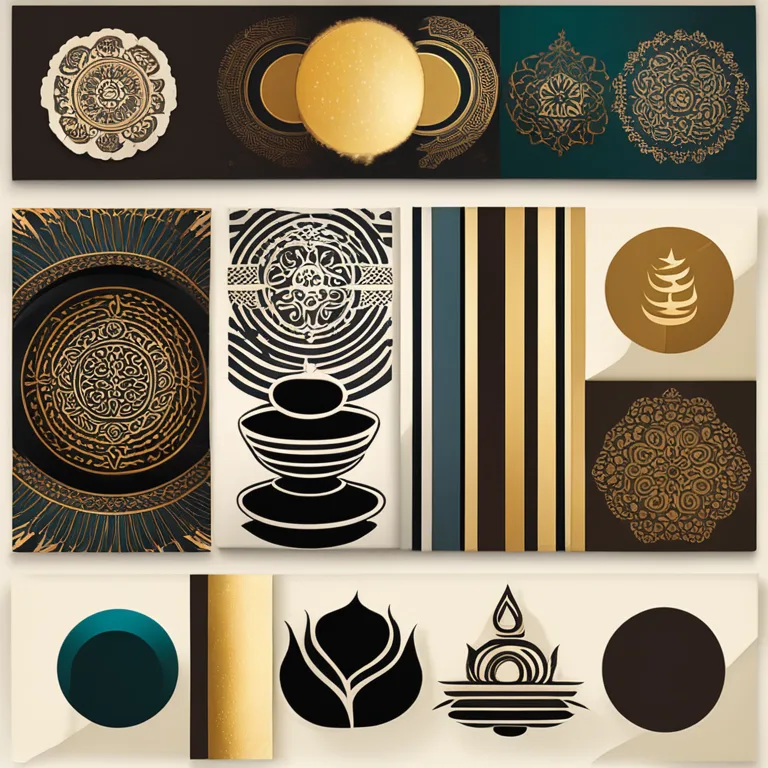
Serenity in Repetition: Mastering Meditation Techniques
Discover effective meditation techniques focusing on peaceful repetition to cultivate mindfulness and inner calm in the modern world.
article by Hina Kurosawa
Introduction to Repetitive Meditation
In the quest for inner peace and mental clarity, meditation has emerged as a key practice. Repetitive meditation, a form often recommended for beginners and seasoned practitioners alike, centers on the serene repetition of a certain action or thought. This simplicity and monotony offer a direct route to mindfulness, quieting the ever-busy minds of those living in a fast-paced 2024 world. As our environment becomes increasingly digital and distraction-filled, these meditation techniques serve as an essential counterbalance, guiding us back to a state of tranquility.

The Essence of Mantra Meditation
Mantra meditation is a prime example of repetitive meditation. Practitioners repeat a word, phrase, or sound, known as a mantra, to help focus their attention. The mantra can be spoken aloud or silently, creating a rhythmic anchor for the mind. This repetition helps to clear extraneous thoughts, allowing individuals to experience a deeper sense of presence and awareness. In the age of constant notifications and digital demands, mantra meditation provides an invaluable refuge from the incessant noise.

Attuning to Breath: Anapanasati Practice
Anapanasati, the mindfulness of breathing, is another powerful repetitive technique. By focusing solely on the inhalation and exhalation, practitioners learn to observe the subtleties of their life force. Each cycle of breath serves as a gentle reminder to stay present. This technique becomes increasingly vital as it not only reduces stress but also improves concentration amidst the growing cognitive demands of modern lifestyles.

Visual Repetition in Meditation
Visual repetition, though less discussed, is an effective meditative tool that involves the focus on a visual object or image. This could be a flickering flame, a calming landscape, or a specific shape. As visual stimuli are a dominant force in contemporary culture, redirecting this sensory pathway towards a singular, peaceful image can greatly enhance one's meditation experience by providing a concentration point that excludes the visual clutter of the everyday environment.

Walking Meditation: Movement as Repetition
Walking meditation is a dynamic form of repetitive meditative practice where the act of walking itself becomes the focus. In a society that valorizes constant productivity, this practice offers the dual benefits of gentle exercise and mindfulness training. Through the methodical rhythm of steps, individuals can cultivate a mobile sanctuary of peace, perfect for those who find still meditation challenging or who wish to integrate mindfulness into their active lifestyle.
The Role of Sound and Music
Sound meditation steadily gains popularity, incorporating soothing tones, chants, or music to facilitate a state of deep relaxation. The repetitive nature of the sound waves functions as an acoustic cocoon, enveloping the listener and blocking out distractions. As our world grows louder with the cacophony of urbanization and media proliferation, the focused cadence of sound meditation offers a harmonious respite for the ears and the mind alike.
Meditation and Technological Integration
While discussing meditation in the context of 2024 and beyond, one cannot ignore the influence of technology. Mindfulness apps and virtual reality experiences are designing new landscapes for meditation. Users can engage in repetitive meditation with guided visuals or sounds that are specifically tailored to induce calmness and concentration in an increasingly connected world. This blend of technology and meditation presents an opportunity for seamless integration into daily routines.
Published: 1/8/2024
Modified: 1/8/2024
More predictions
Come back here soon to learn more about yourself and your future


Mindful Meditation Practices Explained
Discover techniques to enhance your mindfulness through meditation, fostering peace and clarity in your daily life.


Jain Meditation Techniques for Inner Peace
Discover the serenity and spiritual depth of Jain meditation practices in a comprehensive article tailored for modern seekers.


Meditation Techniques to Soothe OCD
Discover meditation practices designed to help manage OCD symptoms through mindful awareness and relaxation.